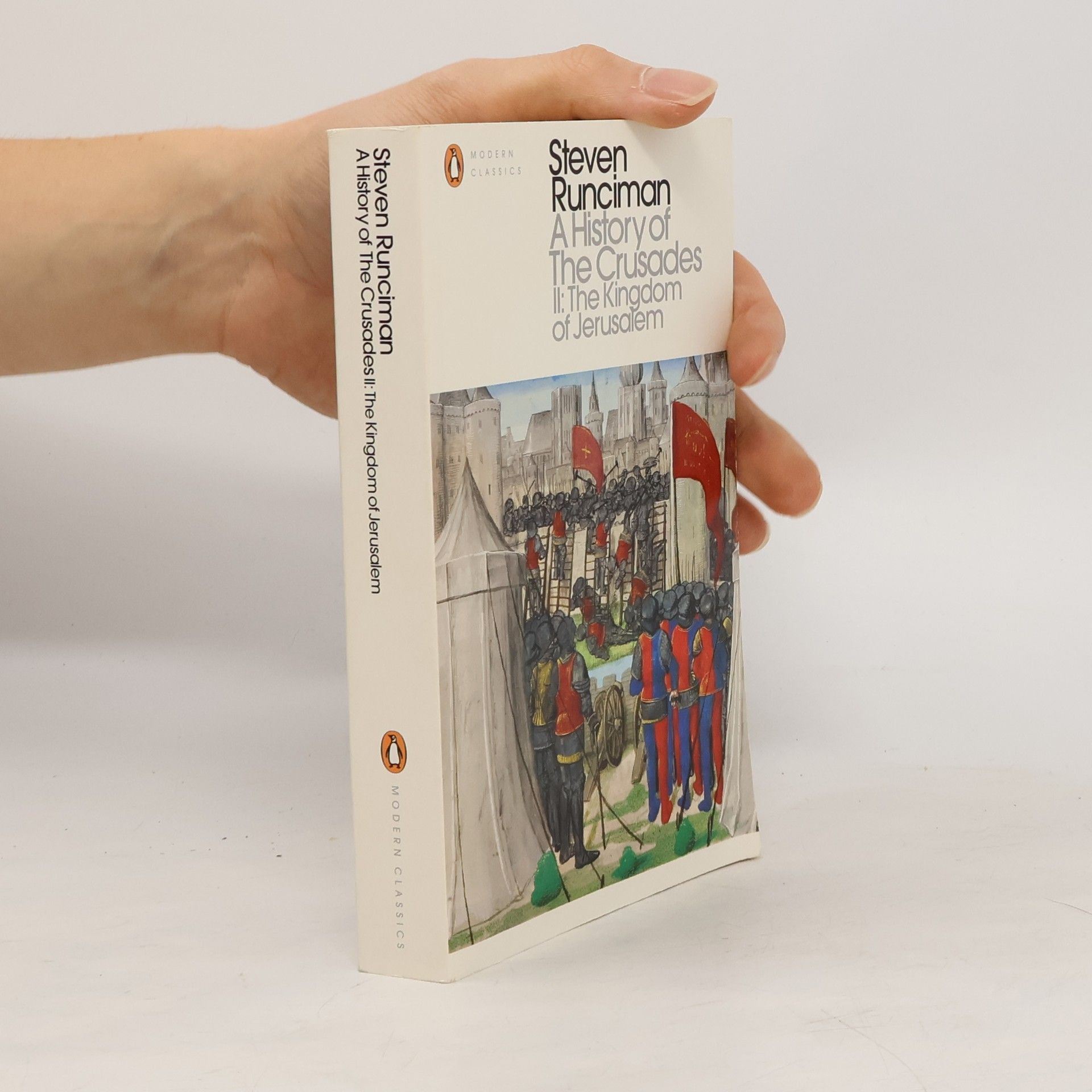Geschichte der Kreuzzüge Reihe
Diese monumentale historische Serie befasst sich mit der komplexen Erzählung der Kreuzzüge und untersucht deren tiefgreifenden Einfluss auf die mittelalterliche Welt. Sie stellt romantisierte Vorstellungen in Frage und verlagert den Fokus nach Osten, um die dramatischen und oft brutalen Realitäten dieser Expeditionen aufzudecken. Leser werden in die politischen Machenschaften, religiöse Inbrunst und kulturellen Zusammenstöße eintauchen, die diese turbulente Ära definierten. Dies ist ein fesselnder historischer Bericht, der die wahre Natur mittelalterlicher Konflikte offenbart.



Empfohlene Lesereihenfolge
A History of the Crusades. Vol.2
- 448 Seiten
- 16 Lesestunden
The second volume of Steven Runciman's classic, hugely influential trilogy on the history of the Crusades 'There was magic about. Saladin himself was troubled by terrible dreams...' Steven Runciman's unrivalled history of the Crusades is a classic of learning and vivid, compelling storytelling, which brilliantly brings to life the personalities, battles, massacres, triumphs and follies of these epochal events. In this second volume of his trilogy Runciman tells the story of the foundation of the Kingdom of Jerusalem, the disastrous, bloody Second Crusade and the inexorable rise of the crusaders' nemesis, Saladin. 'The pre-eminent historian of the Byzantine Empire and of the Crusades ... a surefooted guide who could render the past visible and familiar' Daily Telegraph 'He tells his story plain ... always pleasurable to read' Gore Vidal
The third volume of Steven Runciman's classic, hugely influential trilogy on the history of the Crusades 'The whole tale is one of faith and folly, courage and greed, hope and disillusion' Steven Runciman's triumphant three-volume A History of the Crusades remains an unsurpassed account of the events that changed the world and continue to resonate today. This final volume of the trilogy begins with the glamorous Third Crusade and ends with the ruinous collapse of the crusader states and the degeneration of their ideals, which reached its nadir in the tragic destruction of Byzantium. 'When historical events are written about with this sort of command, they take on not only the universality of a fairy tale but also a certain moral weight. Runciman writes both seductively and instructively about the dignity and beauty of different religious beliefs and about the difficulties of their co-existence' Independent